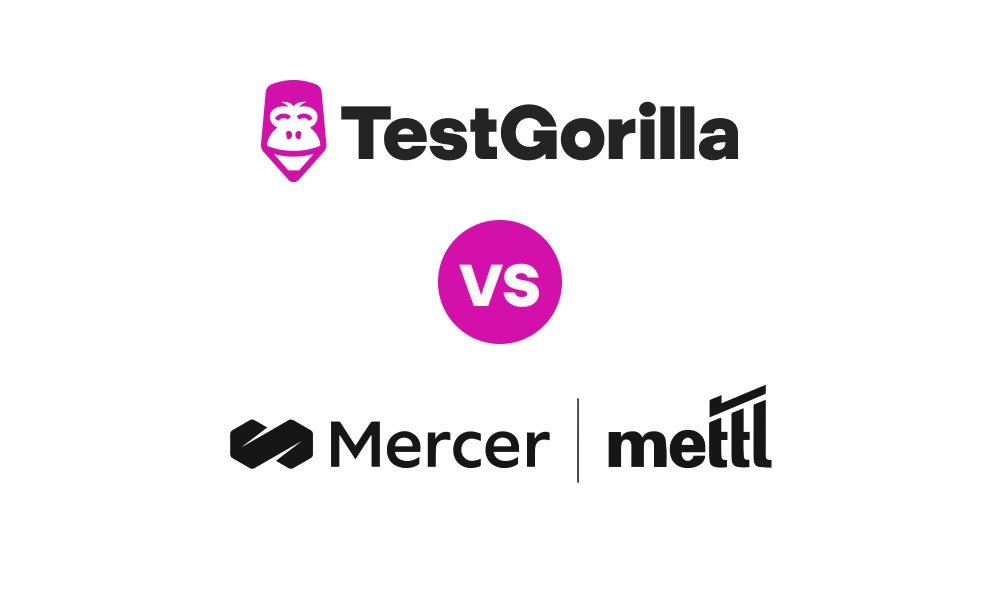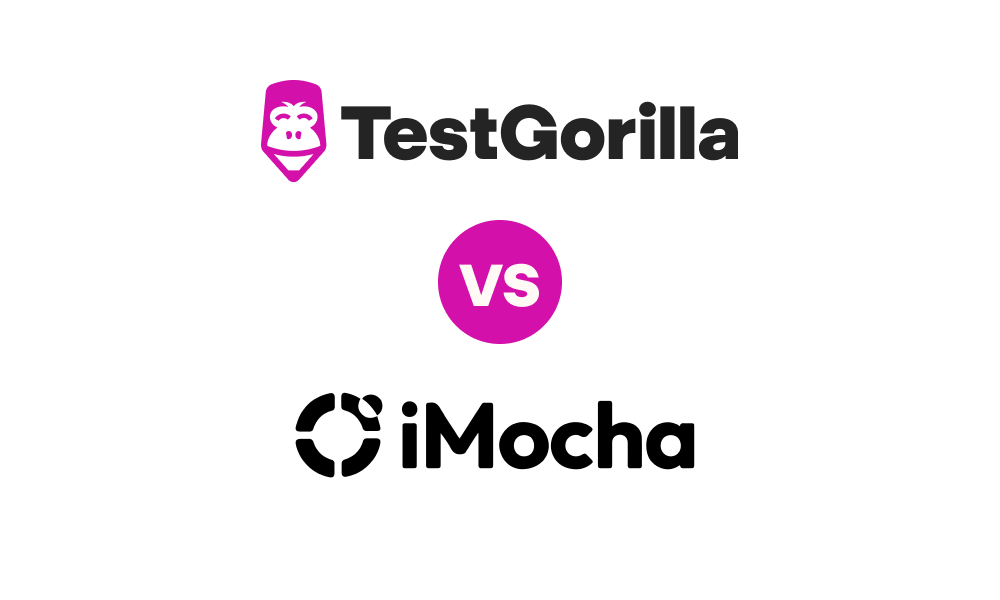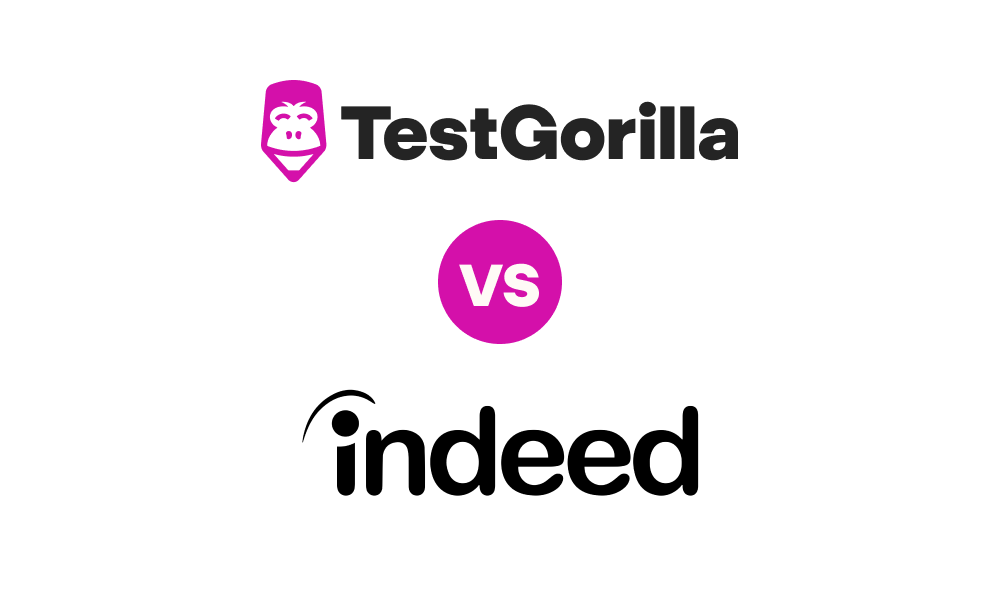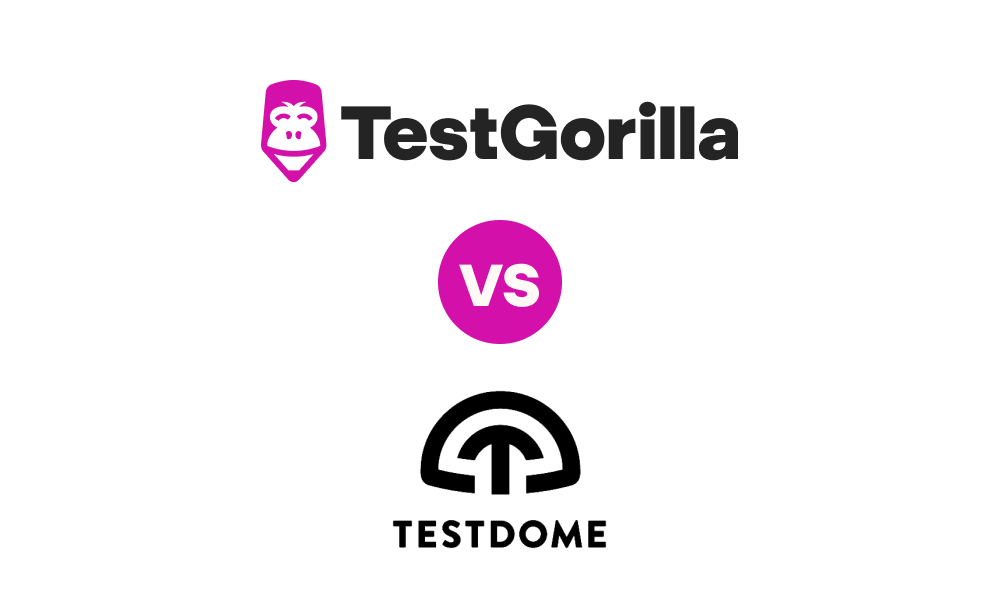Every child deserves to flourish – and for students with special needs, dedicated care and expertise are crucial. Special education teachers, teaching assistants, and other staff play a vital role in this pursuit, empathizing with students and helping them learn at their own pace and manner.
Hiring the right people for any role in special education demands a meticulous approach to hiring – and while resumes offer valuable insights, they can’t give you a precise idea about applicants’ true strengths and weaknesses.
Pre-employment skills tests enable you to quickly identify exceptional candidates. Combine them with the right special education interview questions, and you’ll have a winning combination, enabling you to hire the most qualified experts confidently and without bias.
Below, we’ve compiled the best interview questions for special education teachers, teaching assistants, and other staff to help you get a better understanding of candidates’ skills and expertise and hire the best talent for your facility.
Table of contents
- How to evaluate special education skills
- 6 general special education interview questions
- 6 interview questions for special education teachers
- 6 special education interview questions for teaching assistants
- 12 extra special needs interview questions you can ask candidates
- Hire skilled special education professionals with right interview questions and skills tests
How to evaluate special education skills
Special education professionals need to have a nuanced understanding of diverse learning styles, disabilities, and appropriate methodologies.
They must be able to design individualized education programs (IEPs), assess student progress, and implement evidence-based strategies for the growth of every student.
Resume screening, while helpful, can be subjective and susceptible to unconscious biases. Skills tests and structured interviews, on the other hand, create a level playing field, objectively measuring competencies in key areas and streamlining your special education teacher hiring process.
TestGorilla offers hundreds of skill tests you can use to evaluate candidates. These tests will shed valuable light on some crucial skill areas, such as problem solving, critical thinking, communication, and numerical reasoning.
Beyond evaluating cognitive abilities, you can also use pre-employment tests to gain insights into a candidate’s personality and their compassion, patience, and motivation.
Once you identify the best talent in your talent pool with the help of skills tests, you can move on to the interview phase. To help you prepare for it, we’ve compiled a list of the best special education interview questions below.
6 general special education interview questions
In this section, you’ll find six questions for all roles in special education, along with guidelines on what to expect from candidates’ answers.
1. What motivated you to pursue a career in special education?
Motivation is essential for success in any role, but even more so for work in special education, which can be quite stressful and demanding.
Candidates will likely share how rewarding it is for them to work in special education and see children progress and acquire new skills. They might also mention that they’re excited about making a real difference in children’s lives – or talk about their interest in educational and developmental psychology.
2. How do you adapt your communication style to work with students who have varying learning abilities?
Adapting one’s communication style to students’ level of cognitive development is essential in special education.
Candidates might explain that they start with getting to know each student’s needs by checking their file and interacting with them directly. Then, they might work on breaking down complex topics into more manageable chunks and provide step-by-step instructions to tasks.
Paying attention to students’ responses is crucial, because it allows professionals to adjust their approach and stimulate learning.
3. Can you give an example of how you've collaborated with other specialists to support a student?
A holistic approach can be particularly beneficial for special education students and the best candidates will know that from their own experience.
Look for examples of complex situations that required the intervention of a team of experts to achieve the best outcomes for the student. Did the candidate initiate the collaboration process? How did they communicate with other specialists? Did they involve the student’s parents from the start, and if yes, how exactly?
4. How do you assess and identify the behavioral needs of a new student?
When working with a new student, any skilled special education professional would first gather information about their background, previous educational experiences, and specific diagnoses.
Then, they’d observe the student’s behavior and interactions with their peers and with staff members and evaluate their responses to different situations, teaching methods, and approaches.
They might also talk to the student’s caregivers and previous teachers to get a full picture of their needs and identify the best strategies to support them.
5. How do you explain a student's challenges to their parents?
The best candidates will explain that they approach conversations with parents with empathy and understanding – and that they strive to provide clear information and use non-technical language to explain a student’s needs and difficulties. They’d also provide details of the specific strategies the facility is using to address each challenge and focus on the child’s progress and potential.
6. What best practices do you use to document and report concerns about a student's welfare?
Paperwork is an important part of any role in special education. Here, you can expect candidates to explain how they maintain detailed records of any observations, interventions, and meetings. This includes:
Notes from meetings with parents
Reports and assessments from other professionals
Details on the student’s behavior and progress
Regularly reviewing and updating these records ensures that professionals can accurately capture and address any concerns about a student's welfare. Privacy and confidentiality are also key, so candidates should always ensure that all documentation is secure and only shared with authorized individuals.
6 interview questions for special education teachers
Below, you’ll find six role-specific interview questions to help you assess special education teachers’ skills and abilities.
1. How do you adapt your teaching methods to accommodate students with a range of abilities and needs?
Successful special education teachers know how important it is to be attuned to the students' individual needs.
The best candidates will explain different strategies and resources they’re using to engage with students. They’ll also talk about the importance of reevaluating children’s needs frequently to not stunt their progress by only using a narrow range of strategies that have worked in the past.
2. Can you walk us through how you develop an Individualized Education Program (IEP)?
Developing an IEP is a collaborative, detailed process. It starts with assessments to understand the student's current level and needs. Then, together with the parents, therapists, and other educators, the teacher should set specific, measurable goals and ensure that these goals are not only about academic achievement but about social and life skills.
Regular reviews and updates are crucial to make sure that the IEP evolves with the student's progress and changing needs.
3. How do you create lessons that are accessible to all students, regardless of their learning abilities?
Skilled special education teachers will explain that they design lessons that offer multiple means of representation, expression, and engagement. For instance, they might present content visually, orally, or through hands-on activities.
They’ll also make sure students have different options to demonstrate their understanding of the lesson, whether it's through writing, speaking, or even art, and always leave room for choice, ensuring that each student can engage in different ways.
The best applicants might mention using Universal Design for Learning (UDL), which is a teaching approach that accommodates learners with varying abilities and needs.
4. Tell us about a time when you had to manage a student’s challenging behavior in the classroom. How did you handle it?
Look for examples of candidates who worked on identifying and addressing the root causes of the student’s poor behavior and channeled their energy in a positive way instead of reprimanding them.
For example, they might describe a student who frequently shouted out answers before anyone else had the chance to participate and say that they figured out that the behavior stemmed from a need for attention and validation. They might explain that they assigned specific tasks and responsibilities to the student to give them a sense of accomplishment and leadership without disrupting the work of others.
5. How would you handle a situation where a student's parents disagree with your teaching methods?
Open communication with parents is key in special education. The best candidates would be happy to invite parents to a meeting to discuss their concerns in detail. Look for other signs that demonstrate their willingness to work with parents.
Do they understand the importance of active listening and of validating their feelings and perspectives? Are they able to explain clearly and comprehensively the rationale behind their teaching methods? Are they open to parents’ suggestions or even finding a compromise, if needed?
6. You notice a student's performance suddenly worsens. How would you approach this situation?
A sudden change in performance warrants looking deeply into the possible reasons.
Candidates might explain that they’d first talk with the student in a safe setting to see if they're willing to share any concerns. Then, they could review their records to check for any patterns or recent changes. Communication with parents and other educators would be key to understanding the full picture.
Depending on the findings, they might adjust the student's learning plan, seek additional resources, or involve specialized professionals.
6 special education interview questions for teaching assistants
In this section, you’ll find six special education interview questions to assess teaching assistants’ skills, plus guidelines on what to look for in their answers.
1. How do you make sure you're able to support both the teacher and the students in the classroom?
Prioritizing teamwork and communication enables special education teacher assistants to support the teacher and the students. Candidates should:
Aim to understand the teacher's plan and goals for each day and make sure their efforts are aligned
Be attentive to students’ needs, providing help or adapting materials as needed
Regular check-ins with the teacher would ensure they’re on the same page. The best applicants will proactively look for ways to assist and help teachers, for example by managing learning materials or supporting students who are struggling.
2. Can you tell us about a time when you had to assist a teacher in managing a difficult situation in the classroom?
Candidates’ responses will vary, but look for specific examples that demonstrate their ability to step in quickly and work with the teacher to deescalate the situation to enable them to continue the lesson.
3. How would you handle a situation where you and the lead teacher don't share the same views on how to handle a student's behavior?
In such cases, a skilled special education teaching assistant should aim to have a discussion with the teacher in private in order to understand the differences in their perspectives and explain their point of view.
They should be open to adapting their approach to the teacher, who generally has a more senior role, but also make sure they express their concerns clearly and seek to create a well-rounded strategy for handling the student’s behavior.
4. Tell us about a time when you took initiative in the classroom. What was the situation and the outcome?
Again, answers will depend on your applicants’ specific experiences. Skilled teaching assistants will have plenty of examples to share with you; look out for responses that demonstrate the person’s ability to identify issues and address them proactively, ideally by enhancing the learning experience of the entire class.
5. How do you maintain open communication with parents about their child's challenges?
Skilled candidates will explain that they provide regular updates to parents and encourage them to share their observations and insights. This helps create an atmosphere of trust and collaboration where parents and special education professionals work together to provide the best possible support to students.
6. Tell us about a time when you had to adapt a lesson or activity to make it more accessible for a student.
Any teaching assistant in special education has had to adapt lessons to make them understandable for students.
Skilled candidates will explain specific strategies they’ve used in the past, such as using visual aids or physical objects, or adopting a hands-on approach where students could learn by doing. The best applicants will be able to give examples of using multiple strategies at once to facilitate comprehension and participation.
12 extra special needs interview questions you can ask candidates
If you need more ideas about what to ask applicants, below we’ve selected 12 additional questions for special education professionals.
How do you ensure everyone in the team is on the same page regarding your approach to students' needs?
Can you give an example of a difficult conversation you had with a parent?
What strategies do you use to ensure clear and effective communication with students, especially those who have communication challenges?
Describe a situation where you had to use a creative approach to manage a student's behavior.
How do you ensure confidentiality when discussing student information?
What do you do if you disagree with an administrative decision regarding a student?
What steps do you take to ensure you are respecting each student's background and culture?
How do you handle the stress and emotional demands of working in special education?
Tell us about a particularly challenging situation you've had to deal with in the past. What did you learn from that experience?
In what areas do you feel you could improve, and how do you plan to do so?
Can you discuss a goal or project you'd be excited to work on in this role?
What are your long-term career goals in special education?
Hire skilled special education professionals with right interview questions and skills tests
When hiring for roles in special education, you need to find professionals who not only have the right role-specific skills but also the empathy and dedication to help students progress and learn.
For the best results, we advise you to use a combination of skills tests followed by the right interview questions. This way, you can focus on the best applicants and find the ones who truly have the right blend of expertise, passion, and commitment.
With TestGorilla, you can find the best special education teachers and teaching assistants without any bias. Try our free plan to see how we can help you streamline the hiring process – or sign up for a free demo to talk to our experts.
Related posts
Hire the best candidates with TestGorilla
Create pre-employment assessments in minutes to screen candidates, save time, and hire the best talent.
Latest posts
The best advice in pre-employment testing, in your inbox.
No spam. Unsubscribe at any time.

Hire the best. No bias. No stress.
Our screening tests identify the best candidates and make your hiring decisions faster, easier, and bias-free.
Free resources
This checklist covers key features you should look for when choosing a skills testing platform
This resource will help you develop an onboarding checklist for new hires.
How to assess your candidates' attention to detail.
Learn how to get human resources certified through HRCI or SHRM.
Learn how you can improve the level of talent at your company.
Learn how CapitalT reduced hiring bias with online skills assessments.
Learn how to make the resume process more efficient and more effective.
Improve your hiring strategy with these 7 critical recruitment metrics.
Learn how Sukhi decreased time spent reviewing resumes by 83%!
Hire more efficiently with these hacks that 99% of recruiters aren't using.
Make a business case for diversity and inclusion initiatives with this data.


















